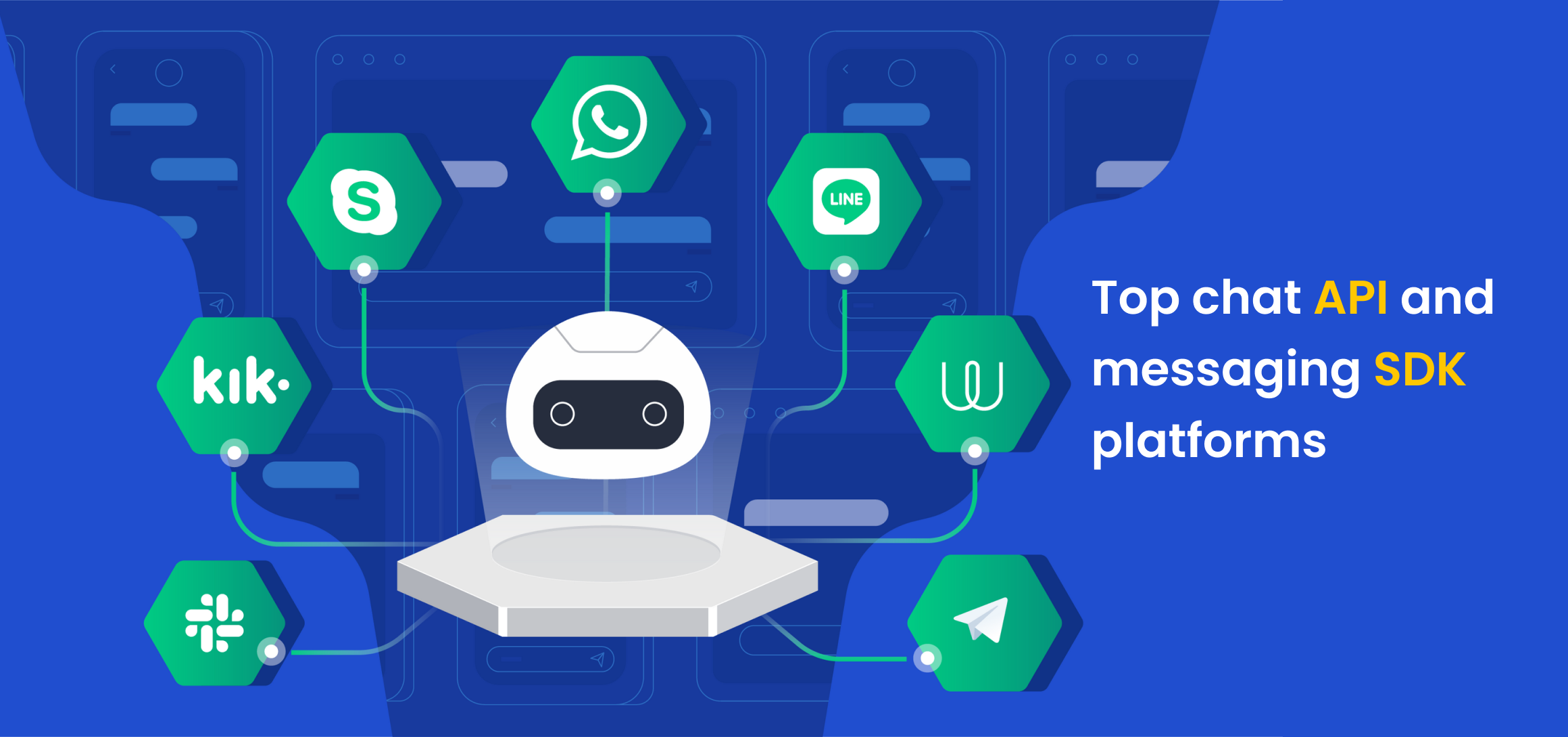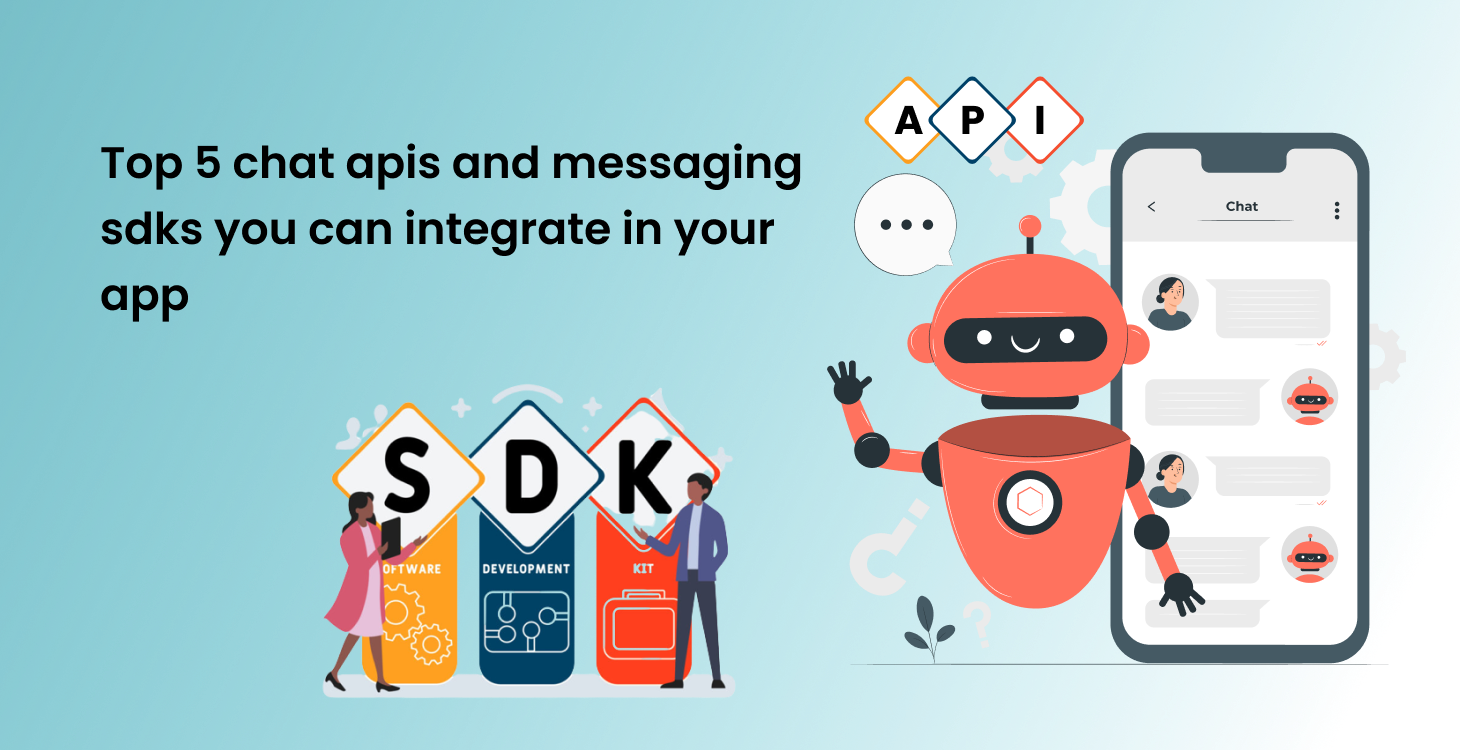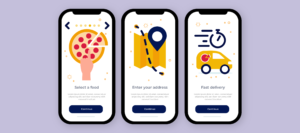To call or text? Which will you favor?
Seven out of ten people say they prefer messaging over calling. So, this comment is a shout-out to anyone clever enough to consider creating their messaging applications or leveraging the above data to generate income. Don’t trust us? Read more.
All of the established tools or platforms of communication have been marketed with the slogan “Communicate in your style, Set your Messaging Application.”
The fact that WhatsApp had 1.6 billion active users as of October 2019 clearly indicates the prevalence and dependence of chat APIs. Real-time chat allows your company to establish direct connections with clients, and those interactions may result in sales, growth, and value. Fortunately, incorporating such a solution into your company has never been simpler. Companies can use prebuilt solutions to quickly integrate chat into current apps and websites rather than creating a messaging solution from scratch.
In the blog, we’ll examine five of the top chat APIs and messaging software development kits (SDKs) for 2022, but first, let’s lay the groundwork by going over some fundamental ideas.
What are Chat APIs and Messaging SDKs?

A business can include pre-existing real-time chat solutions into its websites and applications using the chat platform APIs and SDKs. Both APIs and SDKs are examples of prebuilt solutions. Both simplify the intricacies of messaging software by abstracting all their complexities, allowing companies to offer premium chat features without having to reinvent the wheel. As a result, the supplier will bear less of the implementation burden.
The difference between APIs and SDKs
In the context of real-time messaging, what distinguishes APIs from SDKs? Let’s have a look at it!
- An API enables the user to send HTTP requests to communicate with the underlying messaging platform, such as a business paying for the API service. The company communicates with the chat platform through HTTP requests, sending and retrieving data. This platform then enables the conversation features.
- On the other hand, SDKs are libraries created in particular programming languages (such as Ruby, Java, or JavaScript), enabling rapid application integration. An SDK offers a language-specific interface to the messaging platform instead of the API’s single HTTP interface. As a result, the integration frequently has more features than a messaging API could provide.
- Full-stack chat solutions that come pre-loaded with UI/UX (user interface/user experience) components are frequently among the message SDKs with the most features. Most APIs offer an HTTP interface. However, the simplicity and generality of APIs allow organizations to modify solutions at a more acceptable level without being forced to employ a fully developed chat solution from an SDK.
Things to Consider While Finalizing the Chat APIs for your apps

The benefits of using APIs are relatively obvious, but selecting the best ones for your firm is more challenging. When evaluating your options, bear the following things in mind:
1. Feature relevance:
Understand exactly which features you require before anything else. Look at each viable alternative and ensure it satisfies all of your criteria because similar APIs may offer different features and support.
2. Interface and documentation:
Support documentation that provides clear explanations and helpful examples are essential. Look for naming standards that are understandable and logical when analyzing the documents.
3. Usage restrictions:
A lot of APIs include restrictions, especially those containing data that is accessible to the public. Typically, this is done to deter users’ API misuse or promote subscription upgrades. Check to discover if competitors provide higher or absentee limitations if you’d prefer to live without the hassle of regulating your API usage.
4. Acceptable use policy (AUP):
Check that the API you choose is compatible with and able to handle your idea and use case. In general, abide by local rules and carefully read each AUP to ensure that your product can be launched and expanded.
5. Language support:
The service should offer API programming support in the programming language you are currently using. As opposed to the alternative, which involves converting to a supported language, this will save a significant amount of time for development.
6. Community:
Occasionally, things don’t go as expected. A vibrant, supportive community is a clue that you can get the aid you need. Keep in mind how well-known the API provider is for answering questions.
Top chat API and messaging SDK platforms

1. MirrorFly:
The CONTUS group of companies established CONTUS Fly in 2008. The company began by developing messaging applications, which eventually evolved into real-time chat APIs and SDKs. This brand was later introduced as “CONTUS MirrorFly.”
It connects businesses and customers in real-time with chat, audio, and video features and functionalities that can easily include in any mobile or web app development. With more than 150 chat options, it is incredibly flexible and offers additional possibilities for new features if a business needs them.
Features:
- Group and one-on-one chat
- Numerous chat rooms
- A personal video call
- Group video call
- Visual conferences
Pros:
- Cloud and self-hosting
- Better UI/UX designs to increase user engagement on multiple levels.
- Maintaining Brand Identity With White Label Solutions
- More than 250 Technical Support Teams
Cons:
- Fewer video conference attendees
- Non-availability of Monthly Subscriptions
Pricing:
- Paid (One-time License Cost)
2. Twilio:
With a comprehensive feature set and an array of customizable choices, Twilio is the market leader for web chat APIs and messaging SDKs.
Its product portfolio comprises APIs and SDKs that span all forms of digital communication, including programmatic SMS and MMS, WhatsApp, voice and video, conversational chat APIs, Facebook Messenger, and Google’s Business Messages. Twilio allows developers to interface their application software with virtually any communication channel. Furthermore, you can expand to different channels with the Conversations API to keep up with changing customer preferences after starting with an online or in-app chat channel. The best part: if you add a new channel, you won’t need to rewrite your entire back end or adapt your code to work with a new API.
Features:
- Video and Voice Calls
- Cross-Channel communication
- Authentication using two factors
- Multimedia Assistance
- Alerts that are proactive
- Broad Alerts
Pros:
- Talking with a loud volume
- Little latency
- User and message scalability
- 50 users are given free access throughout the trial period.
Cons:
- Adaptable pricing based on the amount of users and messages
- Supportive Platform: Web and mobile
Pricing:
- Free & Paid
3. Sendbird:
Sendbird, a reputable Chat API and in-app messaging SDK supplier based in the US, protects user platforms’ data using AES 256 End-to-End Encryption. This dependable chat infrastructure supports 500,000,000 messages daily and over 1,000,000 connections per application. Sendbird develops dependable services like global language translation with customers in 250 countries.
Features:
- Muted user
- Image filtering
- A clever throttle
- Protection from spam overflow
- Tools for moderation
- Managing moderator permissions & roles
- Filters for profanity
- Announcements
Pros:
- Private group channels with WhatsApp-style closed group chat and one-on-one texting.
- A network freeze
- AWS Scalable Infrastructure
- Free trials are available for all Pro Features.
Cons:
- Essential conversation features like announcements and delivery receipts cannot be used with the beginning package.
Pricing:
- Free & Paid
4. Mesibo:
With best-in-class message switching technology and codecs, this developer-friendly platform is adorned. It provides the most excellent calling service with negligible latency. The APIs are available for web, iOS and Android app development and simultaneously support various languages. Users can get everything a real-time chat app needs with Mesibo.
Features:
- Individual messaging
- Premium voice and video calls
- Group Messaging with a Simple White-label UI
- Encryption from end to end
- Push Notifications
Pros:
- Regarding cloud and on-site hosting
- Customizable filters and moderation
- Permits the implementation of a custom encryption and key exchange system.
- Demos are accessible
Cons:
- Lack of bandwidth and real-time storage in the on-premise deployment.
Pricing:
- Free & Paid
5. Apphitect:
Apphitect IM’s users enjoy a distinctive personal chat, social interaction, and offline messaging experience because of the 100% customizable APIs it offers. Erlang, Apache Cassandra, and AWS are just a few of the cutting-edge technologies in the platform, which distinguishes it as a top instant messaging API and chat SDK supplier in the market.
Features:
- Chat within the app
- Using push notifications
- Integrations within society
- location monitoring
- Video & Voice Calling
- Screen and multimedia sharing capabilities
Pros:
- Self-hosted clouds with unlimited storage.
- Zero potential downtime
- Scalable and dependable
- Simple integration and constant customer service
Cons:
- It takes 10 business days to incorporate Chat API into a Website.
Pricing:
- Free & Paid
Conclusion:
Which program would be most suitable for you? It entirely depends on a company’s requirements and preferences. The top 5 chat APIs and messaging SDKs you can integrate into your app are given above; using their services will be appropriate for every business. It is crucial to differentiate yourself from the competition with unique qualities in the current environment. Be the first in your industry to use corporate real-time messaging tools to speed up communication.




